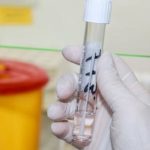People in England can start thinking about booking foreign holidays and trips to see overseas relatives this summer, the transport secretary, Grant Shapps, has said.
But the blueprint set out by the government still raises a lot of questions – including about the potentially high cost of tests for holidaymakers. The consumer group Which? said: “Holidaymakers will still face the eye-watering costs of Covid tests, which … risk pricing people out of taking a holiday.”
What’s the latest announcement?
Ministers have confirmed that from 17 May at the earliest, countries would be placed in a traffic light system, with green, amber and red lists that would set out the rules for things such as testing and quarantining for travellers returning to England.
So which countries are on these lists?
The government says it is too early to predict which countries will be on which list over the summer. It has promised to set out “by early May” which countries will fall into which category, as well as confirming whether international travel can definitely resume from 17 May. So we will all have to wait two or three weeks or so.
However, we do know that travellers returning from the lowest-risk “green list” countries will not have to quarantine but will have to pay for tests, including PCR tests that typically cost about £150-£250 a person on arrival in England.
Tell me more about this traffic light system
Restrictions for inbound passengers will remain in place but will apply to people differently depending on whether the destination they visited is categorised as green, amber or red.
Which list a country is put on will depend on a number of factors including the percentage of the population that has been vaccinated, infection rates and the prevalence of “variants of concern”.
Green: passengers will not need to quarantine on return (unless they receive a positive result) but must take a pre-departure test as well as a PCR test on arrival back in the UK.
Amber: travellers will need to quarantine for 10 days, as well as taking a pre-departure test and two PCR tests (on day two and day eight) with the option of paying for a private Covid-19 test on day five (the test to release scheme) to end self-isolation early.
Red: arrivals will be subject to restrictions currently in place for red list countries, which include a 10-day stay in a managed quarantine hotel, as well as pre-departure testing and and two PCR tests.
At the time of writing, there were 39 countries likely to be on the red list, including Brazil, Seychelles and South Africa. Bangladesh, Kenya, Pakistan and the Philippines were added to the list at 4am on Friday 9 April.
What if a country suddenly moves from one list to another?
 View image in fullscreenKenya has been added to the red list. Photograph: Khalil Senosi/AP
View image in fullscreenKenya has been added to the red list. Photograph: Khalil Senosi/AP
Yes, some people will worry about the possibility of destinations suddenly being moved from green to amber or red, thereby dramatically pushing up the costs.
The government says a “green watchlist” will be introduced to help identify countries most at risk of moving from green to amber but adds that it “will not hesitate” to act immediately should the data show that a country’s risk rating has changed.
How much might all these tests cost?
The plans have already been criticised by some in the travel industry, who said they risked creating a period when only the wealthy could afford to travel.
Which? said its research suggested the current cost was likely to be too expensive for most people. Thousands of people booked holidays to Greece when the government announced international travel might resume from 17 May. Yet a return trip to Greece currently requires five tests totalling an estimated £370 per person, so for a family of four that could add up to £1,480, said a spokesperson.
However, the government’s statement on its plans for green list countries talk about “halving the cost of tests” from their current levels on people’s return from overseas.
It says it will work with the travel industry and private testing providers in the run-up to international travel reopening “to see how we can further reduce the cost of travel for the British public, while ensuring travel is as safe as possible. This could include cheaper tests being used when holidaymakers return home”.
How can I protect my foreign holiday booking?
 View image in fullscreenThe government has promised to set out ‘by early May’ which countries will fall into which category. Photograph: Brian Scantlebury/Alamy
View image in fullscreenThe government has promised to set out ‘by early May’ which countries will fall into which category. Photograph: Brian Scantlebury/Alamy
This year, a package holiday could be the safest way to go: if the tour operator is forced to cancel because travel restrictions are still in place, you are entitled to a full refund via the package tour regulations – in theory, within 14 days.
Also if the company goes bust before you head off to the airport, you are fully protected, and claiming the money back is relatively easy. Last year it was those who had booked their own DIY holidays who had the toughest time getting refunds.



